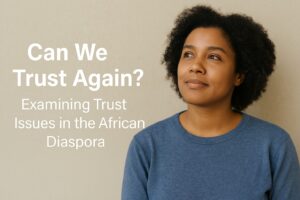African Diaspora and Long Term Investing
Why the African Diaspora Often Struggles with Long-Term Investing
Understanding the roots of short-term thinking and how to shift toward legacy building.
Introduction
“Why don’t we invest long-term? Why do we send money for emergencies, but hesitate with investments that grow over time?”
These are common questions in diaspora circles. And they deserve honest, empathetic answers. While it’s not true for everyone, many in the African diaspora wrestle with short-term financial thinking — not out of ignorance, but out of experience.
Let’s explore why this happens, and what it will take to turn things around.
- Survival Over Strategy
For many, the diaspora journey begins in struggle:
- Visa issues
- Low-income jobs
- Costly remittances
- Pressure to “make it”
When you’re focused on surviving day-to-day, the idea of setting aside money for a 10-year return feels unrealistic. Urgency crushes patience.
We plant fast crops because we fear we may not be around for the harvest.
- The Pressure of “Black Tax”
Many are financially responsible for:
- Relatives’ rent or school fees
- Emergency bills
- Funeral contributions
This creates constant cash outflow with no room to invest.
“How can I think of compound interest when someone needs food today?”
This pressure makes short-term giving feel more valuable than long-term building.
- No Generational Investment Blueprint
Some communities have traditions of generational wealth and legacy planning. But for many in the African diaspora:
- There’s no inherited land, portfolio, or trust fund
- There are few mentors modeling strategic investing
We’re often the first generation to build, so long-term planning feels foreign, intimidating, or lonely.
- Trauma, Scams, and Trust Issues
Many have been burned:
- Family misuses remitted funds
- Property projects never completed
- Diaspora bonds yield no returns
So we pull back. Not because we don’t want to invest, but because we don’t want to get hurt again.
Trust broken once becomes fear twice.
- Social Pressure to Show Success
Diaspora life comes with performance:
- Appear successful when visiting home
- Buy the car
- Sponsor the wedding
- Be the “savior”
This makes consumption feel more rewarding than invisible investment.
Showing success is often easier than building it.
- Lack of Safe Investment Platforms
We often ask:
- “Where do I invest from abroad?”
- “Who do I trust?”
- “What if I lose it all?”
Without clear systems or transparent partners, many default to what feels safe: short-term saving, not long-term investing.
- We Were Taught to Work for Money — Not Grow It
Most of us were taught to:
- Get a good job
- Work hard
- Save a little
But not:
- How to invest
- How to compound wealth
- How to build generational income streams
This shift requires new education, new mentors, and new mindset tools.
The Benefits of Long-Term Investing for the Diaspora
So what are the rewards waiting for us if we make the shift? Let’s take a look.
- Financial Security and Freedom
Long-term investments can create financial stability that outlives your job or salary. They offer peace of mind and options beyond paycheck-to-paycheck survival.
- Compound Growth Over Time
The earlier you start, the more your money works for you. Even small, consistent investments grow significantly over time.
- Generational Wealth Building
Instead of just paying bills, you can create assets that your children and grandchildren inherit.
- Reduced Pressure to Send Remittances Forever
Passive income streams mean you can help family without draining your salary. You give from overflow, not obligation.
- More Influence in Home Country
Those who invest long-term help build schools, housing, fintech, farms, and innovation — not just fund funerals.
- Collective Power Through Group Investment
When diaspora communities pool funds, they can shape industries, buy land, support startups, and influence policy.
Long-term investing is how we stop surviving — and start shaping the future.
So What Can We Do?
- Name the fear — it’s valid, but it doesn’t have to lead.
- Create trusted cooperative systems to pool resources and reduce risk.
- Tell our success stories — let others know it is possible.
- Educate ourselves and the next generation about wealth building.
- Balance today’s giving with tomorrow’s vision.
You can support your family and invest in your future. It’s not either/or. It’s both/and.
Final Reflection
The African diaspora is not lacking in love, money, or talent.
What we lack is long-term structures and safe ecosystems for collective investing.
We don’t need to change who we are. We just need to start thinking beyond survival — and toward legacy.
“Start small. Stay consistent. Build something your grandchildren can thank you for.”




